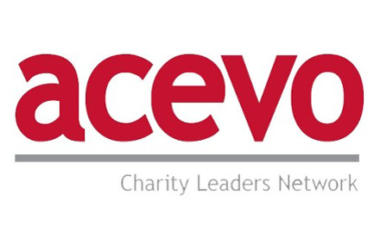Acevo's income has fallen by over 20 per cent to £888,000, according to its latest annual accounts published today, but it has brought its reserves levels back up following five years of deficit.
The umbrella body said that this fall in income followed the closure of its “loss-making business consultancy service”.
The accounts for the year end March 2018 show that Acevo’s expenditure has also declined, falling from £1.2m in 2017 to £826,222.
However Acevo said that after five years of deficit it has finally brought its reserves back into the range agreed by its trustees.
'Stabilised our finances'
Acevo’s chief executive Vicky Browning, and chair Paul Farmer, who announced he would be stepping down earlier this month for personal reasons, said in a statement in the accounts: “After five years of deficit, we’re...pleased to have stabilised our finances to produce a surplus this year of £67,000, bringing our reserves level back into the range agreed by our trustees.”
Acevo said that the last year has seen an increase of 33 per cent of new members joining. Its membership income remained relatively stable, down by £4,000 on the previous year to £472,000. Acevo said that this was despite a drop in member numbers – from 1,165 to 1,105 – which was partly down to the ending of some bulk memberships.
Browning was the highest paid member of staff during the year, being paid £71,990 with employer pension contributions of £8,206.
The accounts show that the ratio of the highest paid member of staff to the lowest was 3:1.
The number of staff also went down for the year, with the staff headcount down by 3.8 to 13 staff, and the full-time equivalent down from 15 to 10.1.
Acevo paid out £5,942 of redundancy and termination costs, down significantly from £18,970 the year before. In 2017, the charity went through “a major staff restructuring”. It made several posts redundant, with staff numbers falling by a third.
'An exciting year for Acevo'
In the accounts, Farmer and Browning said: “This has been an exciting year for ACEVO as we’ve worked to reinvigorate and refresh our organisation and boost engagement with our members.
“We’ve been out and about across the country connecting and conversing with our members. We’ve refreshed our vision, purpose and values and consulted widely with our members as to how they want the organisation to adapt in our continuing mission to support, develop and champion our sector’s leaders.
“And we’ve seen a corresponding rise in member satisfaction, with renewal rate (a key measure of member satisfaction), increasing from 64 per cent to 80 per cent year on year. Levels of new members joining have increased and the outcome is a more stable, more satisfied and more engaged membership.”
Related articles











